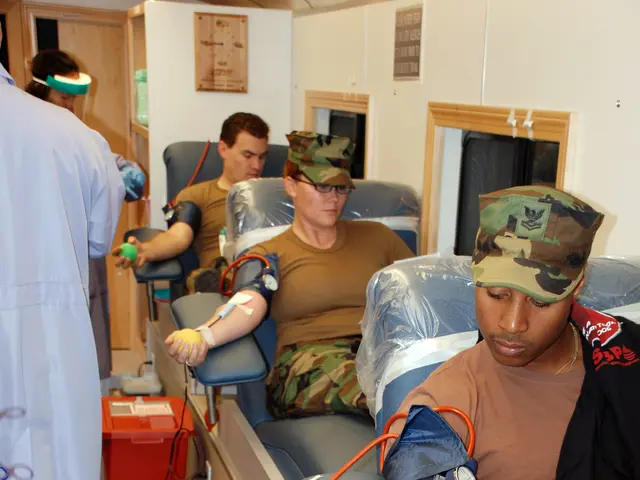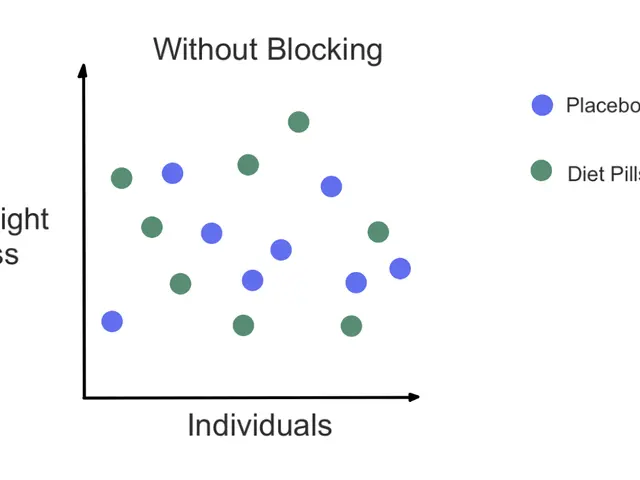Rest's Impact on Fitness Objectives: Exploring the Connection Between Sleep and Physical Achievements
Adequate sleep plays a crucial role in weight loss, muscle healing, and athletic performance, all of which are fundamental to achieving fitness goals.
Weight Loss
Getting sufficient sleep helps regulate hormones related to hunger and appetite, such as ghrelin and leptin. Poor sleep disrupts these hormones, causing increased hunger and cravings for high-calorie foods, which can lead to weight gain. Sleep deprivation can also lower metabolism and suppress fat oxidation, reducing the body's ability to break down fat for energy. This can hinder weight-loss efforts by making it harder to maintain a calorie deficit. Additionally, insufficient sleep leads to daytime fatigue and reduced motivation to exercise, which decreases daily calorie expenditure and further challenges weight loss.
Muscle Healing and Recovery
Sleep is when the body undergoes critical muscle repair and growth processes. During sleep, tissues recover and muscles repair the micro-damage caused by workouts. Proper rest (generally 7 to 8 hours per night) allows the muscles to respond effectively to physical stress from exercise, facilitating better recovery and progress toward strength and hypertrophy goals. Lack of adequate sleep impairs this repair process and can lead to muscle breakdown, delayed recovery, and suboptimal gains.
Athletic Performance
Sleep deprivation negatively affects reaction time, muscular power, endurance, fine motor skills, and cognitive functions such as problem-solving, all essential for athletic performance. Insufficient sleep increases the risk of injuries and delays recovery, reducing overall training quality and progression. Conversely, adequate sleep enhances physical activity by improving energy levels, motivation, and performance during exercise.
In conclusion, maintaining 7 to 8 hours of quality sleep is vital to optimize body composition, muscle recovery, and athletic performance, thereby supporting overall fitness goals. Skimping on sleep compromises metabolism, healing, and exercise results, undermining progress despite a solid diet and training routine.
During rest, the body works naturally to perform recovery tasks for muscle development and energy maintenance. Insufficient sleep causes impaired glucose metabolism, leading to insulin resistance and type 2 diabetes. REM (Rapid Eye Movement) sleep is a specific stage of sleep associated with increased brain activity, eye movement, and dreaming.
Establishing a sleep-friendly environment can improve sleep quality. A cool temperature (60-67°F or 16-19°C) is best for sleep quality. Limiting screen time at least 60 minutes before bedtime can prevent blue light exposure. A sleep-friendly environment also includes maintaining the bedroom cool, dark, and distraction-free. Adding magnesium-rich foods can encourage relaxation, while avoiding heavy or spicy meals before bedtime can prevent discomfort and disrupt sleep.
A holistic strategy that incorporates quality sleep, balanced diet, and regular exercise can help maintain a healthy weight and peak fitness. This approach recognises the interconnectedness of these elements in achieving optimal physical health and fitness. By prioritising quality sleep, individuals can better support their weight loss efforts, muscle healing, and athletic performance, ultimately contributing to their overall fitness goals.
[1] National Sleep Foundation. (2015). Sleep and Athletic Performance. Retrieved from https://www.sleepfoundation.org/sports-and-fitness/sleep-and-athletic-performance [2] National Sleep Foundation. (2016). Sleep and Exercise. Retrieved from https://www.sleepfoundation.org/articles/sleep-and-exercise [3] National Sleep Foundation. (2015). Sleep and Weight. Retrieved from https://www.sleepfoundation.org/articles/sleep-and-weight [4] National Sleep Foundation. (2015). Sleep and Muscle Recovery. Retrieved from https://www.sleepfoundation.org/articles/sleep-and-muscle-recovery [5] National Sleep Foundation. (2015). Sleep and Weight Loss. Retrieved from https://www.sleepfoundation.org/articles/sleep-and-weight-loss
- Quality sleep is essential for regulating hunger hormones, as lack of it can cause increased hunger and cravings for high-calorie foods, impeding weight loss.
- Adequate sleep plays a significant role in muscle repair and growth, essential for strength and hypertrophy in fitness endeavors.
- Sleep deprivation negatively impacts athletic performance, affecting factors like reaction time, muscular power, endurance, motor skills, and cognitive functions.
- Proper sleep improves energy levels, motivation, and performance during exercise, enhancing fitness-and-exercise results.
- Establishing a sleep-friendly environment, such as maintaining cool temperatures, limiting screen time, and keeping the bedroom dark and distraction-free, can improve sleep quality.
- Inadequate sleep increases the risk of injuries and delays recovery, affecting the overall quality and progression of training regimens.
- Insufficient sleep can cause impaired glucose metabolism, potentially leading to insulin resistance and increased risk of developing type 2 diabetes.
- A holistic approach that prioritizes quality sleep, a balanced diet, and regular exercise is beneficial for maintaining a healthy weight, muscle recovery, and athletic performance.
- The connection between sleep, diet, and exercise plays a crucial role in achieving optimal physical health and fitness, as each component influences the others.
- Prioritizing quality sleep helps support weight-loss efforts, muscle healing, and athletic performance, ultimately contributing to overall fitness-and-wellness goals.
- Referring to credible sources such as the National Sleep Foundation ([1], [2], [3], [4], [5]) can provide in-depth information on the impact of sleep on various aspects of health and fitness.





